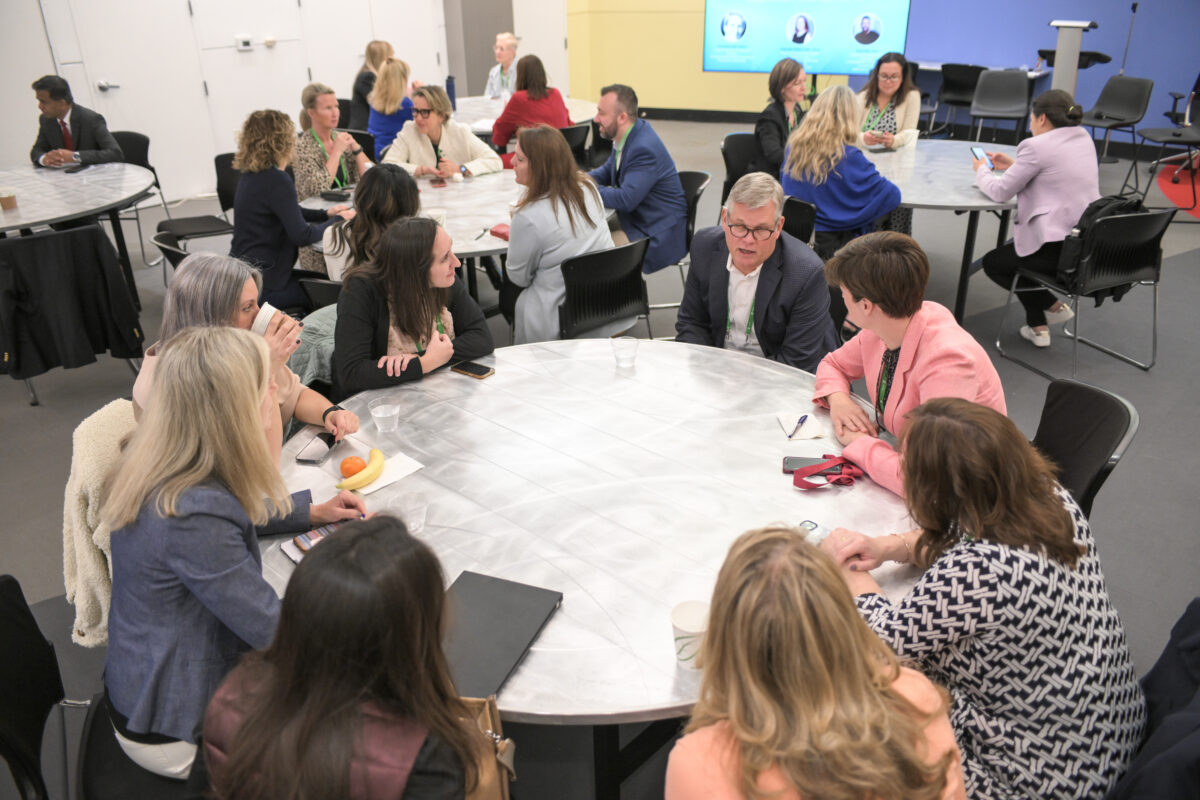Skift Take
Events need to be planned long in advance, but the pandemic has made it difficult to predict what will happen from one day to the next. If anyone has their ear to the ground, it’s doctors — and a recent survey asked them for their opinion on events.
Many eventprofs are eager to get back to planning face-to-face programs, and while vaccination programs may hold the promise of a return to live events sometime within the next year, the industry will remain heavily reliant on virtual options for months to come.
Fortunately, the rapid evolution of virtual event technology and an influx of new investments is making virtual a lower-cost, higher-reach option that increasingly presents a compelling alternative to live events that pose any sort of risk. As virtual options get better, at what point is the risk worth going in person?
If any focus group can help event planners gauge the market’s tipping point, it’s the attendees of medical conferences. These events not only feature content-heavy programs that translate well to virtual formats, but they cater to some of the most risk-conscious attendees around.
EventMB spoke with Eli Gorin, Managing Director of FHTglobal, which released a report in December that surveyed international healthcare professionals for their willingness to attend in-person events and their take on the pivot to virtual medical conferences.
Just how competitive will virtual events be, and might they even threaten in-person events as they start to reemerge?
What Event Planners Can Learn From the Survey
FHTglobal’s white paper includes results from a November survey of 346 healthcare professionals (HCPs) spanning 62 countries. The study was ultimately designed to answer three fundamental questions:
- When will international HCPs be comfortable attending in-person conferences within the US again?
- What are their attitudes towards virtual meeting alternatives?
- What kind of role can third-party sponsors play in shaping their decision to participate?
Besides providing insight into a potential timeline for the event industry’s recovery, their answers provide key information on what international attendees think about virtual events.
Will Healthcare Professionals Attend In-Person Events Over Virtual?
It all comes down to weighing the risks against the benefits, which will inevitably vary from region to region. International attendees make up a large contingent of many medical conferences. The situation in the attendee’s home country will be a factor, but the destination’s overall infection rate and vaccine status will be just as important. International attendees have to feel comfortable travelling to the event’s host city, but also have to feel like it’s worth it over a virtual experience.
THE RISKS: WHY HCPs WOULDN’T TRAVEL TO ATTEND IN-PERSON
FHTglobal’s survey provides a valuable litmus test because it highlights a destination with one of the world’s most ambitious vaccine programs — the United States — and it gauges the comfort level of a group likely to be among the first vaccinated: healthcare professionals.
For these reasons, we might assume that HCPs would be cautiously optimistic about the prospect of attending US-based conferences early in 2021. The survey responses, however, paint a different picture.
It is not until the third quarter of 2021 that a slight majority (51 percent) anticipate feeling either “somewhat comfortable” or “very comfortable” with the idea of attending a medical congress in the US. Even when looking ahead to the fourth quarter of 2021, 25 percent remain “unsure” and an additional 13 percent fall into the category of “somewhat uncomfortable” or “not at all comfortable.”
Why wouldn’t HCPs be more optimistic? The answer could simply be that they realize how long it will take to achieve anything close to ‘herd immunity.’
Why would they need to wait for herd immunity if they themselves are vaccinated? For one, it may be possible to carry the virus asymptomatically even after taking the vaccine, in this way potentially bringing it back to their home countries where they could infect unvaccinated people. For another, the more a virus is allowed to spread unchecked, the more opportunities it has to mutate — possibly into what’s known as an “escape variant,” which would render the vaccine ineffective.
Ultimately, what this means for event planners is that they cannot expect to attract international medical professional attendees in large numbers until roughly 75 percent or more of their local population has been vaccinated. Even in countries with robust vaccine programs like the US, that is not likely to happen until the third quarter of 2021.
THE BENEFITS: HOW DOES VIRTUAL COMPARE?
FHTglobal’s survey shows that over half of the HCPs surveyed had a “positive” or “very positive” experience of virtual events. Will these attendees want to attend events in-person when they are already satisfied with risk-free virtual alternatives?
HCPs may have more incentive to attend events virtually than many professionals. Medical conferences place much more emphasis on educational content than most B2B events. And while virtual events struggle to deliver on the engagement and networking opportunities that are so central to B2B events, they are generally considered effective avenues for educational content.
Moreover, medical conferences can cost $1,000s to attend in person, especially for attendees abroad who may have to pay airfare and accommodations. As a result, many HCP attendees rely on being invited as hosted buyers. Those who are not invited or sponsored may find that virtual events afford access to content and networks that are not otherwise logistically or financially convenient.
Nevertheless, as a professional class that tends to fall into a fairly affluent income group, they also provide a useful benchmark for expectations around ticket pricing. According to FHTglobal’s recent survey, over two thirds of HCPs think that virtual event ticket prices should be $150 USD or lower. On the other hand, most cited an expected cost of between $100 to $150. For event planners who have questioned whether they can charge for virtual events at all, this is good news, especially considering that almost three quarters of the survey respondents had either attended or planned to attend a virtual conference in 2020.
These initial results are promising for an event industry that is still learning the ropes in a virtual landscape. The question then becomes whether these satisfaction numbers can be driven even higher as event planners respond to customer feedback.
How Can Event Planners Optimize the Virtual Attendee Experience?
While engagement and networking potential will always be key drivers of event ticket sales, another undeniable factor is convenience. From the perspective of international attendees, there are two competing factors at play:
- For in-person events, there is the element of travelling to the destination, which could be an incentive or a hassle depending on flight costs and length.
- For virtual events, there is the sometimes overlooked issue of time zone differences.
EventMB was given access to the survey’s raw data, and the regional breakdown of responses offers a deeper dive. European attendees had the highest rate of dissatisfaction, with 21 percent reporting a “negative” or “very negative” experience in virtual events. By contrast, only 6 percent of North American attendees (primarily from Canada) cited a “negative” experience — and not a single one described it as “very negative.” Time zone compatibility could certainly help to explain this discrepancy.
To address the time zone conflicts inherent in virtual events, Gorin suggests making livestream sessions available after hours as on-demand content, and where possible, hosting mini regional events that allow attendees to tune into live sessions at a convenient time. Beyond making content more accessible, these types of live sessions provide a crucial opportunity to connect with other attendees, which in turn translates to better networking potential.
On the other hand, Asian and Australian respondents had the highest rate of satisfaction, with 63 percent rating their experience as “positive” or “very positive.” While their expectations could be culturally informed, it’s also possible that these attendees placed more value on being able to access the event content without travelling halfway across the globe — a process that likely requires several legs and therefore more opportunities for exposure or confinement in an airplane for a much longer period of time that is more likely to include more than one meal.
The appeal of virtual will inevitably depend on just how inconvenient (and expensive) travel options are, and these factors will continue to play a role even after the pandemic is no longer a significant threat.
What Medical Events Tell Us About Sponsor Needs
The relationship between HCPs and third-party sponsors is also revealing, particularly in relation to virtual events. As mentioned above, HCPs often have their attendance costs offset by sponsored invitations.
The FHT survey results suggest that both HCPs and sponsors place less value on virtual events than on their in-person counterparts.
While 60 percent of respondents said they had previously been the invited guest of a third-party sponsor at an in-person medical congress, only 47 percent had been invited to a virtual event by a sponsor in 2020 — and of these, 17 percent declined the invitation. It may be slightly misguided to compare these figures, since one reflects an entire career worth of experience whereas the other is limited to a single year. Still, the numbers suggest that virtual events may be somewhat less attractive to both sponsors and attendees alike.
WILL VIRTUAL EVENTS BE ABLE TO CREATE MORE VALUE FOR SPONSORS?
According to Gorin, many sponsors question the ROI of funding virtual event tickets because the format tends to provide fewer opportunities for direct engagement with attendees. But will event tech providers figure out solutions to these issues over time?
As a workaround, Gorin suggests designing the event platform in a way that requires attendees to interact with sponsor content. He explained, “If more organizations create a gateway that requires some form of engagement with sponsors before entering the event, they’ll see that there’s value to it.”
He added that the lower price point needs to be marketed as an opportunity to reach a wider audience. This tactic, he argues, can pay dividends for sponsors in the long run: “It opens up more opportunities for them to invite people they normally wouldn’t at a price point that is not so cost prohibitive, people like doctors in residence who might remember them later when they have buying power.”
Since respondents were also much more likely to attend virtual events if their tickets were sponsored, an event’s overall success could hinge on convincing sponsors that it’s worth the investment.
IN CONCLUSION
The information gleaned through FHTglobal’s research provides valuable insight to event planners — both within and outside the medical field.
The attitudes of healthcare professionals can help event organizers to gauge how quickly vaccine campaigns will translate into higher attendance numbers, particularly for events with an international reach. It can also help them to decide whether virtual or hybrid options might actually be more marketable. When it comes to online options, HCP spending expectations provide a useful benchmark for setting ticket prices. The survey’s international focus provides insight into how travel costs and time zone differences might influence attendee attitudes towards virtual events.
Lastly, while FHTglobal’s report suggests that sponsors may be less confident in the return on their investment when it comes to virtual events, the lower ticket costs mean that the same investment level can cover a much wider group of potential leads. And over time, virtual formats will only get better at meeting sponsor expectations.





